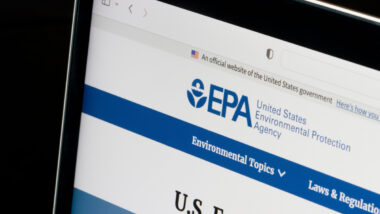Top Class Actions’s website and social media posts use affiliate links. If you make a purchase using such links, we may receive a commission, but it will not result in any additional charges to you. Please review our Affiliate Link Disclosure for more information.
Medicare Overview
Medicare is a healthcare funding program run by the federal government. People who qualify for Medicare include those who are 65 or older, some younger people who have disabilities, and people with end-stage renal disease, or permanent kidney failure, who require dialysis or a kidney transplant.
Medicare is divided into several parts that cover different types of medical care.
According to Nerd Wallet, Medicare Part A is hospital insurance, covering inpatient hospital stays, nursing facility or hospice care, and some home health care. Medicare Part B is medical insurance. This part of Medicare covers outpatient care, certain doctors’ services, medical supplies, and preventive services. Medicare Part D offers prescription drug coverage for patients.
Medicare plans may be offered through insurance companies and other private companies that have been approved by Medicare.
What Kinds of Lawsuits Involve Medicare?
Medicare lawsuits generally involve fraud and are often filed by whistleblowers, or people who have direct knowledge and evidence of fraud who file a lawsuit on behalf of the government. Whistleblowers are often employees or former employees of companies that are routinely committing fraud. Doctors, nurses, pharmacists, and other healthcare employees may commit Medicare fraud in a variety of ways in order to pocket a profit. Often, the only way to uncover Medicare fraud is for another employee to report it by initiating a whistleblower lawsuit.
One common type of Medicare fraud involves a healthcare provider billing Medicare for unnecessary services that were performed with no medical reason, or services that were never actually received by a Medicare patient. This type of billing fraud may be committed by physicians, pharmacies, hospitals, medical device providers, labs, ambulance companies, home healthcare companies, and other medical providers.
Other types of Medicare fraud may include kickback or illegal referral schemes between providers to increase profits for medical care establishments or individual physicians, or overcharging for healthcare services or medical devices. Medicare fraud may also involve up charging the insurer by billing Medicare at a higher rate than the actual cost of the device or procedure.
Medicare fraud ultimately costs American taxpayers who fund the program. One way to stop Medicare fraud is a whistleblower lawsuit.
Settlements
Employees who have evidence of their employer committing fraud against Medicare may be able to earn large financial rewards by filing a qui tam or whistleblower lawsuit under the False Claims Act. Whistleblowers who file lawsuits on behalf of the government are generally eligible to receive between 15 and 30 percent of any money recovered by the suit. According to the Department of Justice, whistleblower lawsuits resulted in around $2 billion of recovered funds for the government in 2018, meaning that whistleblowers who file lawsuits were able to receive significant compensation.
How Can Lawyers Help?
Employees who have evidence of their employers committing Medicare fraud will not be entitled to a portion of any recovered money if they report the fraud via a tip line rather than filing a qui tam lawsuit. Additionally, whistleblowers must have new and unique evidence that has not already been discovered in order to file a qui tam lawsuit. Hiring a qualified whistleblower attorney to help you put together your case may make it easier for you to navigate the legal process.















